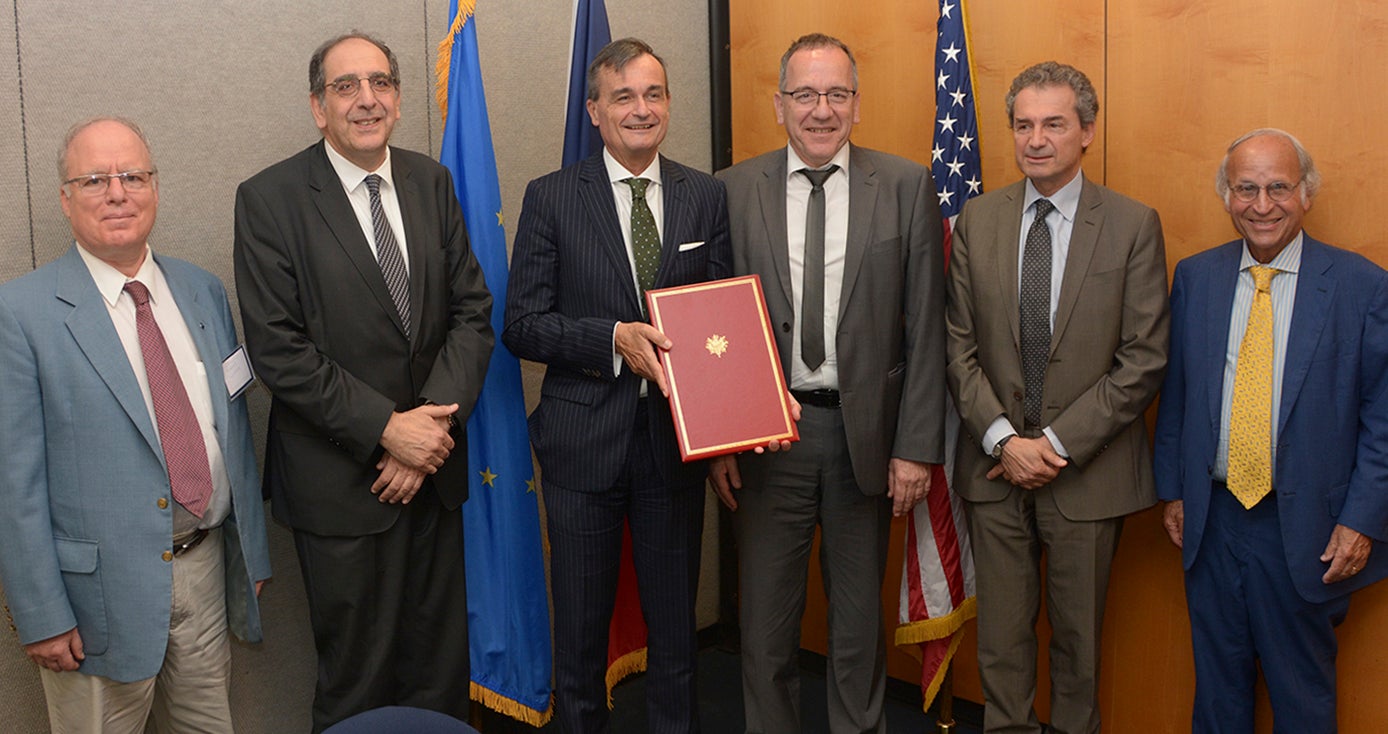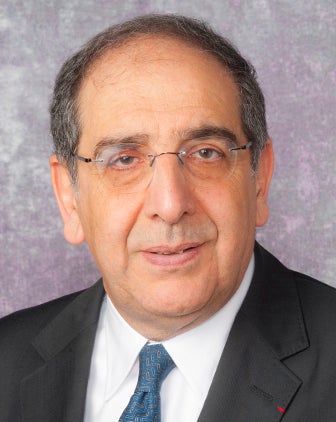
Subscribe to Pittwire Today
Get the most interesting and important stories from the University of Pittsburgh.Vision Restoration Research Set to Advance Through Agreement with French Institutions
Pitt is going global with its research aimed at restoring vision for those with sight problems.
The University of Pittsburgh School of Medicine recently entered into an agreement with three French medical-research institutions in an effort to collaborate on research and education in medicine and biomedical sciences.
“The main goal is to work together in vision restoration,” said José-Alain Sahel, the Eye and Ear Foundation Chair of the Department of Ophthalmology at Pitt’s School of Medicine and director of the UPMC Eye Center. “Both sides will benefit from this. This will enable Pitt to mirror what has been achieved in Paris and maybe even do better.”
The Parisian institutions partnering with Pitt are the Université Pierre-et-Marie-Curie, the Institut National de la Santé et de la Recherche Médicale (also known as Inserm or France's equivalent to the National Institutes of Health) and the Centre National de la Recherche Scientifique (CNRS, the largest governmental research organization in France).
Researchers from all four institutions will cooperate on basic research, the development of novel therapeutics and clinical trials. Initially, the partnership will focus on ophthalmology, vision and neuroscience research. Pitt also will benefit through the exchange of researchers, joint academic conferences and through the sharing of scientific, educational and scholarly materials.
Both sides will benefit from this. This will enable Pitt to mirror what has been achieved in Paris and maybe even do better.
José-Alain Sahel, Pitt's chair of ophthalmology
Pitt is already collaborating with the French institutions on projects that include investigating ways to repair the optic nerve — a challenging task with the ambitious goal of restoring vision — as well as developing new approaches to improve vision for people experiencing the natural eye-related effects of aging.
The partnership also will make use of new technologies, including adaptive optics, which derives some techniques from astronomy and enables the use of high-resolution imaging to help correct aberrations in the human retina.
Each of the French institutions bring something unique to the table. Inserm is the only public research institution solely focused on human health and medical research in France. CNRS, the French National Center for Scientific Research, is the largest basic science center in Europe. Université Pierre-et-Marie-Curie is a top-ranked medical school and the largest scientific and medical complex in France.
Sahel, who is leading the effort from the Pitt side, was recruited to the University in 2016. His connections to Paris were instrumental in forging the agreement, which was signed in July at the French embassy in Washington, D.C. Sahel studied medicine and ophthalmology at the French institutions Strasbourg University and Louis Pasteur University Hospital in Strasbourg, respectively. He went on to become the founder and director of the Institut de la Vision in Paris and a professor at the Université Pierre-et-Marie-Curie. He also taught until 2016 at the University College London.
French researchers are already partnering with Pitt faculty, and visits to both sites will help build scientific collaborations on research and clinical trials.
“It’s really building a framework for people working together in bringing more and more technologies and expertise for patient care,” Sahel said.



